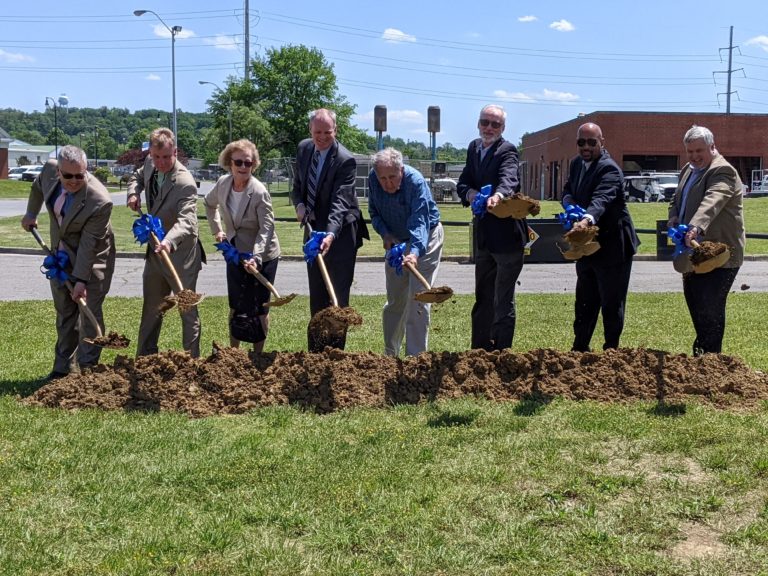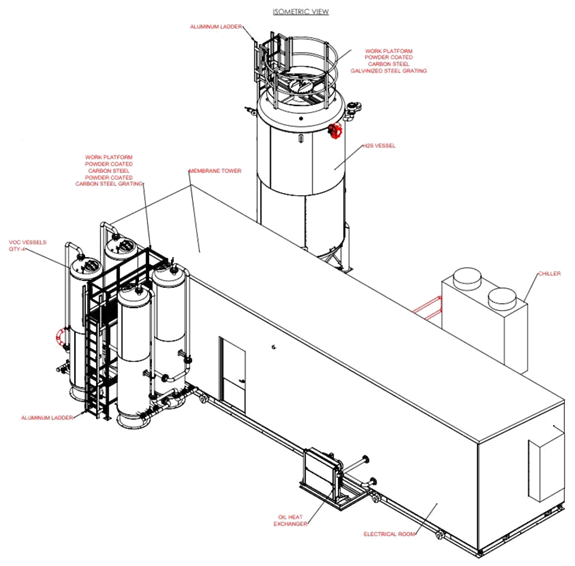
The Virginia Energy Innovation Act (“VEIA”) became law on July 1, 2022. The purpose of the VEIA was to encourage natural gas utilities to invest in biogas facilities.
Roanoke Gas Company wasted no time in seeking approval of a biogas facility. On August 3, 2022, Roanoke Gas filed the first application with the Virginia State Corporation Commission under the VEIA for approval of a biogas supply investment plan.
Under the plan, Roanoke Gas will buy anaerobic digester gas (“Digester Gas”) from the Western Virginia Water Authority (“WVWA”). The Digester Gas will be processed through a digester gas conditioning system, gas carrying pipe, and other necessary equipment (“RNG Facility”), which will be constructed, owned, operated, and maintained by Roanoke Gas to produce renewable natural gas (“RNG”). Roanoke Gas will then sell the renewable attributes and credit excess revenues to customers. A portion of the revenues will be shared with the WVWA to implement a low income payment assistance program.
Roanoke Gas sought approval of: (1) a certificate of public convenience and necessity (“CPCN”) to construct, own, operate, and maintain the RNG Facility pursuant to the Utility Facilities Act; (2) a rate adjustment clause (“RAC”) designated Rider RNG, for the recovery of projected costs associated with the RNG Facility as permitted by Va. Code § 56-625; and (3) tariff provisions pursuant to Va. Code §§ 56-248.1 and 56-234 related to the RNG Facility, the Company’s procurement of “supplemental and substitute forms of gas” under the Code, and the interconnection of renewable natural gas facilities owned and operated by third parties with the Company’s distribution system.
In order for Roanoke Gas to recover “eligible biogas supply infrastructure costs” under Va. Code § 56-625 B, the Commission needed to approve the Company’s biogas supply investment plan that identified a “proposed eligible biogas supply infrastructure project.” Under the Code, an “eligible biogas supply infrastructure project” means:
Capital investments in biogas facilities that, alone or in combination with other projects or strategies, offer reasonably anticipated benefits to customers and markets, which benefits mean (i) a reduction in methane or carbon dioxide equivalent emissions from the biogas facility, (ii) an additional source of supply for the natural gas utility, and (iii) a beneficial use for the biogas, and which benefits do not result in the gas delivered to customers failing to meet the natural gas utility’s pipeline quality standards.
In its Application, Roanoke Gas explained that its RNG Facility is an eligible biogas supply infrastructure project because it is an investment in a biogas facility that is in combination with the WVWA’s rehabilitation of its digesters. As noted by the Commission, “[a] significant issue in this case was the extent to which Roanoke Gas’ RNG Facility, and by extension its biogas supply investment plan, will result in a decrease of methane or carbon dioxide equivalent emissions and, in particular, whether emissions reductions from WVWA’s digester rehabilitation project may be considered.”
The Company provided significant evidence that the RNG Facility, in combination with the digester rehabilitation, will result in a reduction in methane or carbon dioxide equivalent emissions. The Commission found that the statute permits the anticipated emissions reductions from the RNG Facility to be considered with emissions reductions from the WVWA’s digester rehabilitation and that the RNG Facility in combination with the WVWA’s digester rehabilitation project, will result in a decrease or methane or carbon dioxide equivalent emissions. The Commission granted the Company a CPCN to construct the RNG Facility, approved Rider RNG, and approved the proposed tariff provisions.
GreeneHurlocker is honored to have represented Roanoke Gas in the proceeding. For more information on this case please contact Brian Greene or Victoria Howell.




Sorry, the comment form is closed at this time.